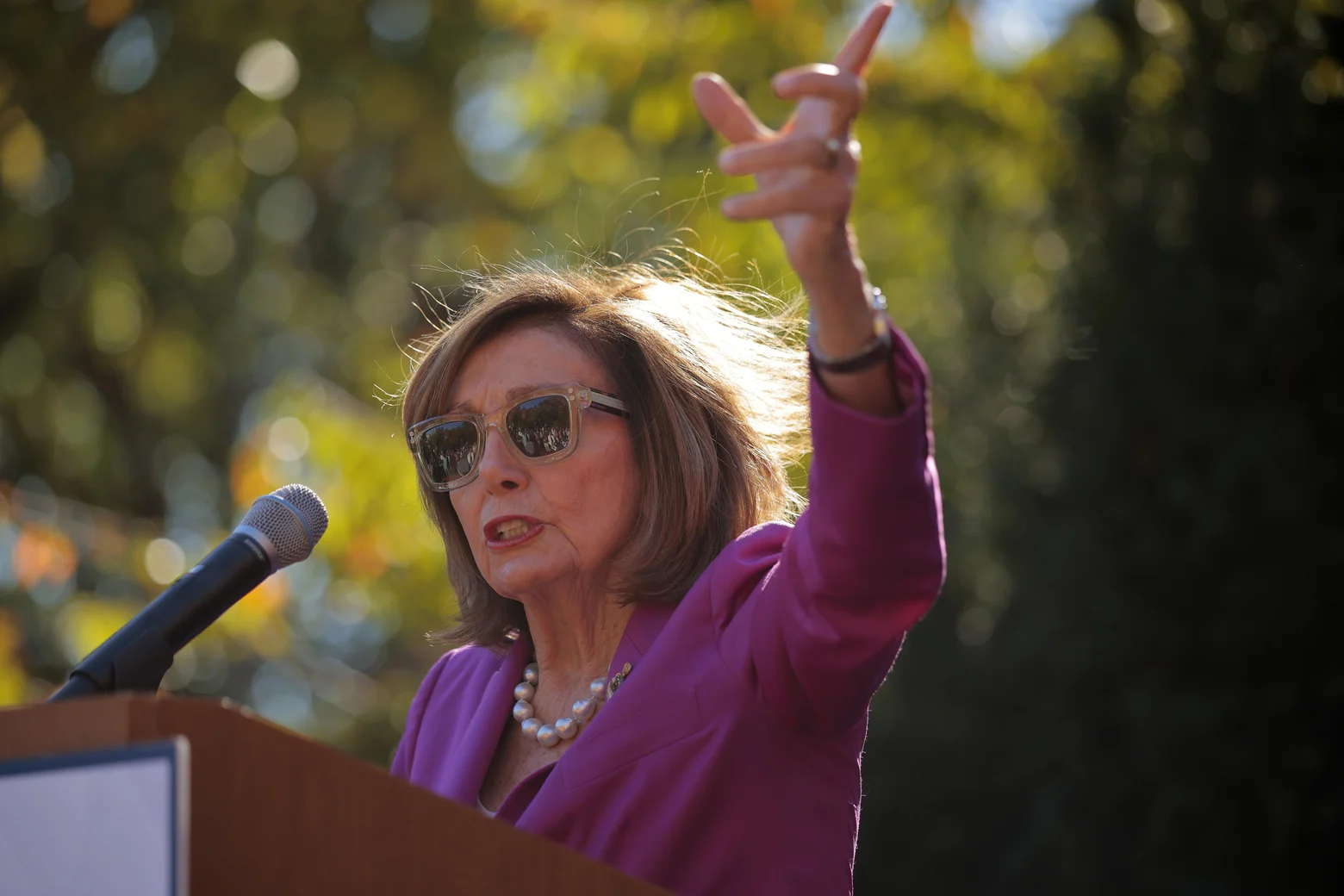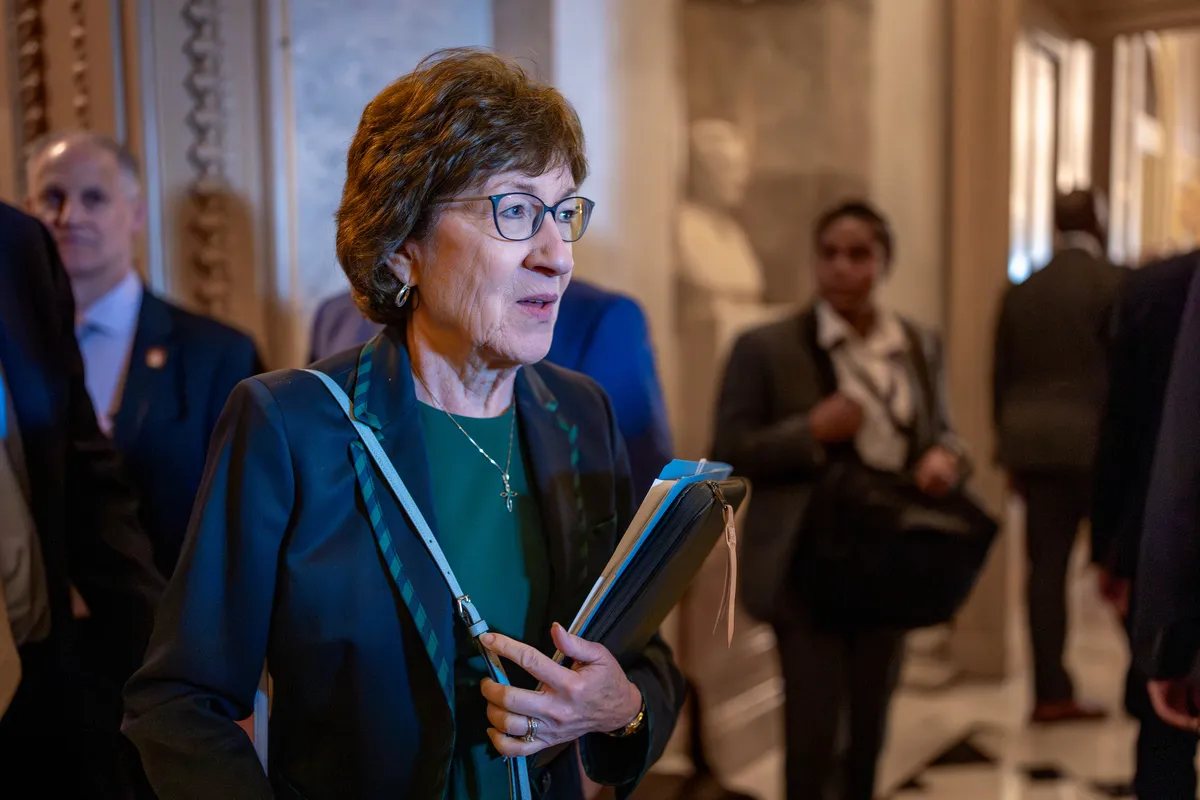Copyright Slate

Sign up for the Slatest to get the most insightful analysis, criticism, and advice out there, delivered to your inbox daily. Nancy Pelosi, a lion of the Democratic Party and one of the most storied deal-makers and leaders in Washington, is finally stepping down after four decades in Congress. When her term ends in 2027, she will finally retire at the age of 86. It is well past time. But hopefully other lawmakers will learn from Pelosi’s remarkable career – lessons in how to effectively wield power, but also in pitfalls to avoid: namely, that even the appearance of using the office for personal gain loses public trust, and staying on too long loses the party power. Pelosi’s life is nothing short of incredible. She raised five children and worked in Democratic politics long before it was particularly common for women to be in those particular rooms. She came to Washington in 1987, two years before New York Rep. Alexandria Ocasio-Cortez was even born, and steadily made her way up her party’s ranks. She became the first female Speaker of the House, and remains the only woman to ever serve in the role. As Speaker, she was a dealmaker like no other, even managing to usher a national healthcare system through Congress – a feat several before her had tried, and all had failed at. The passage of the Affordable Care Act remains one of her signature achievements, and one of the most consequential for everyday Americans. One study found that the ACA’s Medicaid expansion alone saved nearly 30,000 American lives from 2010 to 2022. She has also been a champion of younger members of Congress, forging a relationship with Minnesota Rep. Ilhan Omar and working to get the House’s ban on headwear removed so that Omar could wear her hijab at work. In her early 80s she mentored a protégé, Hakeem Jeffries, to take her spot as party leader. It has certainly not always been an easy ride. Pelosi is a favorite right-wing target, with Donald Trump consistently lambasting her on social media. She is hated by MAGA Republicans; when rioters busted into the Capitol complex on Jan. 6, 2021, some of them made a beeline for Pelosi’s office, and there is good reason to believe that they would have physically attacked her if given the opportunity – not long after, a man broke into Pelosi’s home and, finding the congresswoman away, savagely beat her husband with a hammer, fracturing his skull. Trump’s son, Don Jr, joked on social media about the attempted murder. Pelosi is a legend. She has served her constituents and her country with the kind of force and effectiveness that very few elected officials can claim. She embodies many of the best aspects of the Democratic Party: Its diversity, its feminism, its insistence on making life better for ordinary Americans. But her career has also been emblematic of the party’s worst impulses: Its disconnect from the same working class it claims to represent, embodied in its refusal to force politicians to stop trading stocks. Its descent into a stubborn gerontocracy. The Pelosis are fabulously wealthy, and Paul Pelosi’s investment portfolio has long been an eyebrow-raiser for ethics-watchers. Members of Congress have access to information not available to average Americans, and that gives them an incredible advantage in the stock market. While Pelosi may not actually share what she learns at work with her husband at home, the truth is that many members of Congress do seem to have enriched themselves based on what they hear in private meetings and briefings. It’s just plain wrong. And even if members aren’t actually trading on insider information, the appearance of doing so erodes public trust. Pelosi’s tenure in Congress has been over an era in which members of Congress have grown fabulously wealthy—nearly half are millionaires—while Americans have struggled. The Pelosis are worth hundreds of millions of dollars. Other Democrats, including Ocasio-Cortez, have argued that members of Congress should not be able to buy and sell individual stocks, and they’re right. There is no evidence that Pelosi has done anything illegal when it comes to her family’s investments. But the appearance of impropriety is bad enough—and the temptation to act on insider information is just too high to continue allowing the status quo. Pelosi, with all of her power, could have been a model for a better way. Worse than the money problem is the age problem. This is bipartisan—President Donald Trump is pushing 80—but Democrats are supposed to be the party of progress, which should mean the party of new ideas and young people who hold them. Young Americans remain pretty liberal, and while the party has sought their votes, it has not given them power in turn. Democrats continue to run and re-run well into their 70s and 80s, even when they are struggling with clear cognitive decline; in the past few years, several have died in office. Joe Biden became the avatar for this dynamic when he, already the oldest president in history, ran for reelection as an octogenarian in increasingly visible decline. He only dropped out after he stumbled through a debate and the calls for him to step aside (including from Pelosi) became too loud to ignore. Pelosi is not experiencing the kind of obvious deterioration that plagued Biden. But she is an 85-year-old woman. She recently had a hip replacement after a fall. Had she retired earlier, it might have sent a message to her other aging colleagues: You have to know when it’s time to go, and part of the job is to mentor and then make room for the young. She is, to her credit, stepping back before she has totally physically or mentally deteriorated, but that’s an awfully low bar. And she has, in her defense, still been doing incredible work on Congress. It seems unlikely that her age will be the kind of legacy-defining black mark that is has become for Biden. Age, though, has become a party-defining black mark for Democrats. And it has been under Pelosi’s leadership, and in line with her decades in office and into her own advanced years, that Democrats have gone from the party of the sincere and idealistic young to the party of the senile and infirm elderly. Biden bowing out only after enormous pressure was a low point for the party. But it was also hopefully the nadir of its gerontocracy problem. Pelosi’s retirement announcement may just signal a lesson learned—and one that will allow a new generation of Democrats to emulate Pelosi’s grit, her commitment, and her exacting ability to amass and wield power for good.



